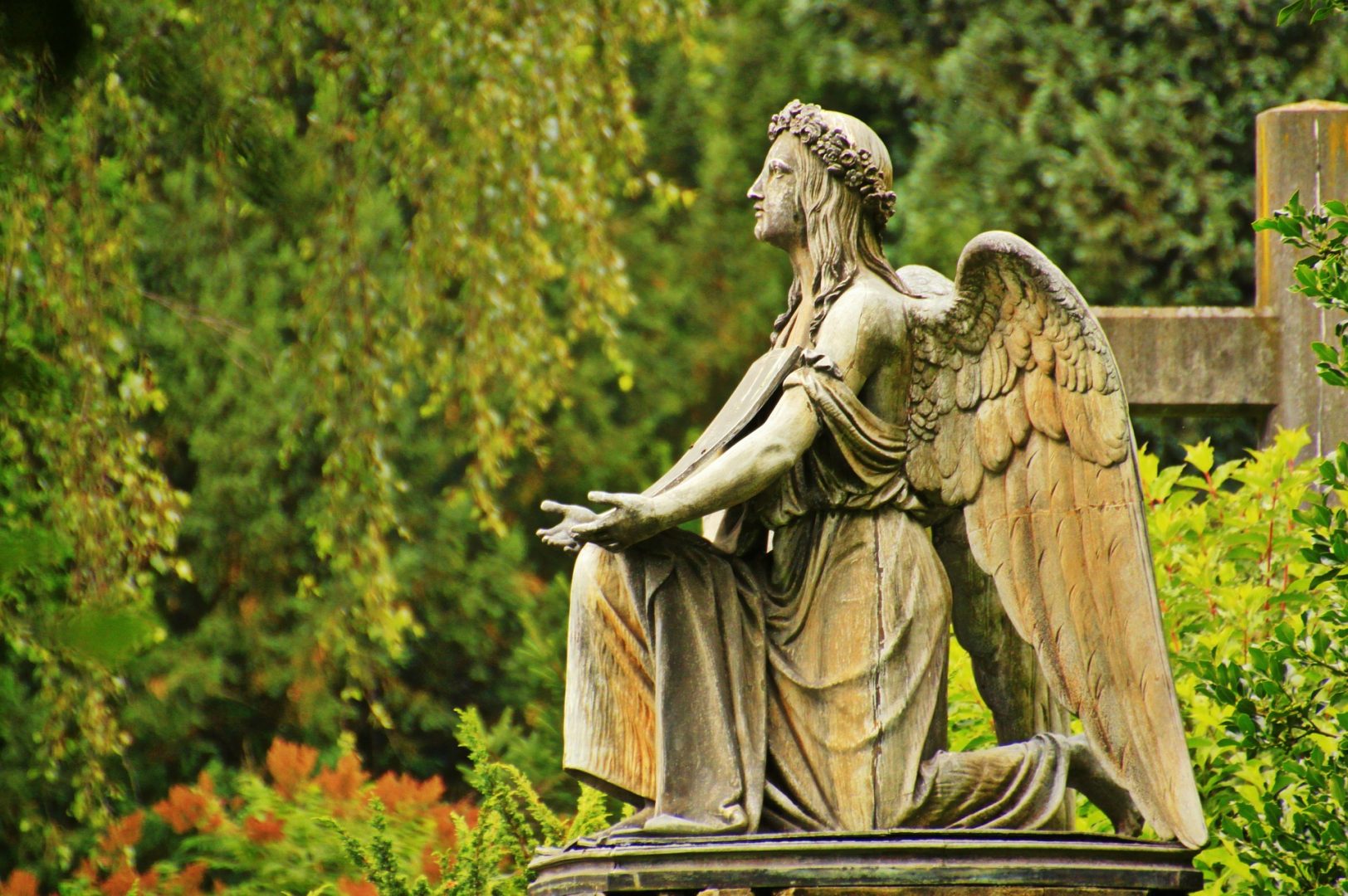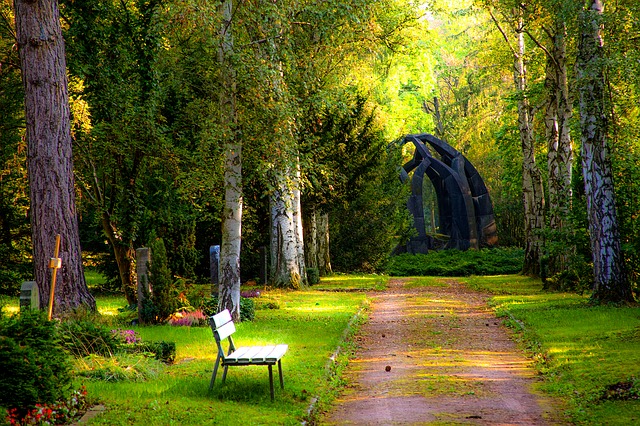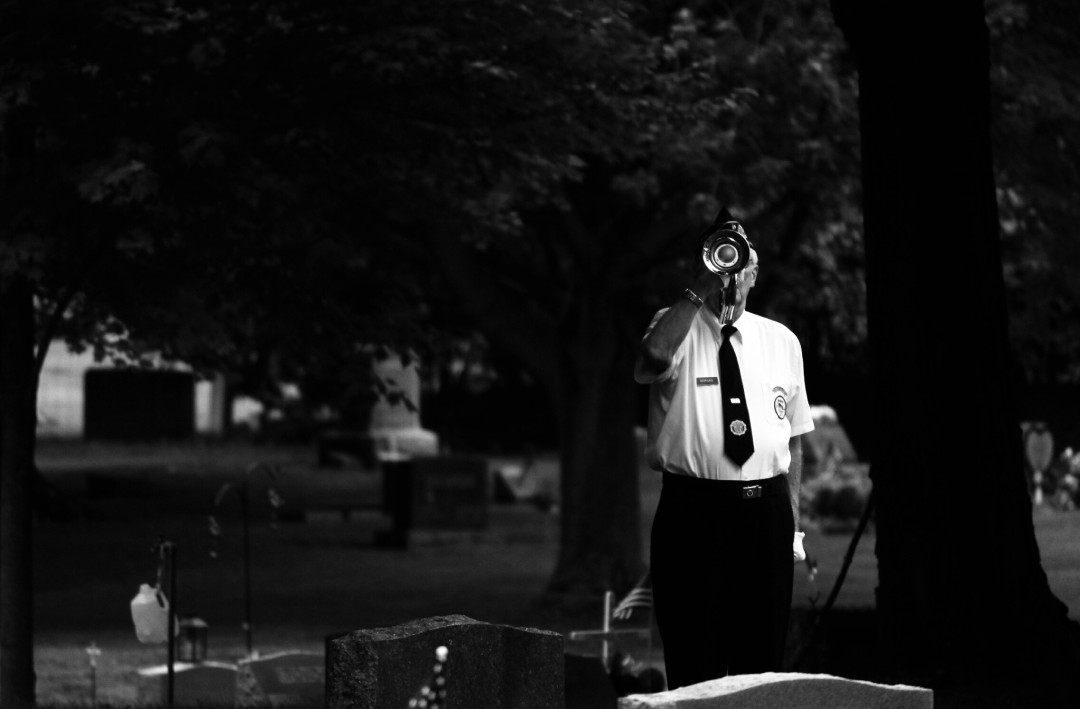How to Make Funeral Arrangements

The death of a loved one can be a very stressful and confusing time for many people. Not only is death a highly emotional experience, but it also requires specific actions and arrangements to take place during a short amount of time. Understanding the process can be difficult at best, especially while those close to the deceased are grieving.
In an effort to help you make sense of the Funeral Arrangement process, we have compiled all of the key information you will need into a single article. By following these steps, you will have all of the basic necessities taken care of during your time of need. For more detailed information on funeral arrangements and proper etiquette, please refer to our other, more targeted, articles.
The Funeral Planning Process
Many people never even think about what to do in case of a death until they are faced with the reality. Knowing where to start is vitally important and will help make the next days move forward as easily as possible.
The First Call
When someone passes, there are specific legal steps that must be taken. These first calls are important and will vary depending on the nature and circumstances of the death. If these calls fall to you, then it is crucial that you know where you need to start and who you need to contact.
- If an individual passes alone or due to unknown circumstances, then it is vital that local law enforcement be contacted immediately. Officers will be sent to the location and will assist you with how to move forward.
- When an individual passes, an attending physician, medical examiner, or coroner will have to officially pronounce the death. If you are in some type of medical facility, this will typically happen automatically. However, if the death happens in some other location, this will happen at a later time.
- If you are not next of kin and feel there is are funeral arrangements in place, then a legal representative or family member should be contacted immediately. It is important to determine if a plan exists and knowing the details of that plan will help you move forward appropriately.
- Finally, you will need to contact your local funeral home of choice. The Funeral Director will be able to provide step-by-step assistance in terms of transferring the body and facilitating the specific funeral arrangements for the deceased. These individuals are highly knowledgeable and experienced. Allowing them to help you through the process can make the entire process easier to understand and complete.
Transportation of the Deceased
Once an individual passes, one of the first issues to face is transportation. Many people struggle with knowing who to call and even where the body should be taken. Here are a few key tips to help you understand the process and your options.
In many situations, it is common for the body of the deceased to be transported directly from the place of death to the local funeral home of your choice. At this point the funeral director will help you move forward in terms of either making funeral arrangements or arranging for the body to be moved to another city or location for burial. Either way, there is some key information you will need to provide either before or immediately after transport. This information includes:
- Name of the deceased.
- Deceased’s residence — Address / City / State / Zip / Phone #.
- Deceased’s Social Security Number.
- Date and time of death.
- Current location of the deceased — Facility name / Address / City / State / Zip / Phone #.
- Attending physician name and phone #.
- Your name.
- Your residence — Address / City / State / Zip.
- Your telephone #’s — Daytime / Evening.
- Your relationship to the deceased.
If you have any questions about the transportation process, your funeral director will be an invaluable asset to you. These experienced professionals can walk with you as you make final arrangements for your loved one and seek to understand the proper way to transport the remains from one location to another.
Pre-Arranged Funerals
In some cases individuals have chosen to proactively plan and even pay for their final expenses. If this type of plan exists it can be a huge relief to the family as they have a clear understanding of the wishes of the deceased as well as a decreased financial responsibility.
If death is imminent, we recommend talking with your loved one to find out if a plan is in place, and who you will need to contact. This will help expedite the funeral arrangement process as you will know exactly what calls to make and who you need to speak to. However, if death is unexpected, then you will need to talk to next of kin or the deceased’s legal representative to determine what, if any, arrangements have been made.

Funeral Services
There are many different types of funeral services and decisions to make in terms of funeral arrangements. Many people do their best to arrange a service that will honor the deceased, their wishes and their life, however these decisions can be confusing and difficult to make.
We recommend meeting with your local Funeral Director to talk through this process. They will help you understand your choices and even outline what decisions you need to make. This includes the location and format of the visitation, who will perform the services, music choices and many others. Having a professional walk through these options with you will help make the process less confusing and more efficient.
Common Questions Include:
How can I pay for a funeral?
Paying for a funeral is expensive and many people are caught off guard by the costs involved. Assistance options will vary by geography, and your local funeral director will be an invaluable resource in finding and applying for assistance.
Do I have to have a funeral?
Absolutely not! The type, location and extent of your services are your decision. Some people choose to do a memorial where no body is present. Others choose to do no service at all. Your options are practically endless and the decision should reflect both your comfort level and the wishes of the deceased.
How do I decide if cremation is the right choice?
Current estimates show that approximately half of all people choose to be cremated. This is a personal choice that must be made by each individual and family. Knowing your choices and what the process entails will help you make an informed decision for either you or your loved one.
Cemetery and Burial Arrangements
If you are choosing to move forward with a burial for your loved one, then there are several decisions to make and options to consider. First, you will need to determine if a funeral plot has been purchased. If not, then it will be important to determine which type of cemetery property you wish to purchase.
Either way, the first step is to meet with the selected cemetery. The officials at the cemetery will help you understand your options as well as the services they provide. This can include either above or below ground services as well as the option to install a grave marker.
After your loved one passes you will need to go to the cemetery to plan or confirm specific burial arrangements. This is a fairly new practice that was started during the 1990’s to help prevent wrongful burial and it can catch many people off guard. Previously only the funeral home staff was involved in the process but the customs have changed over the last few decades and many people are surprised when cemetery personnel want to take them to the physical burial location.
What if I don’t own Cemetery Property?
For those individuals who do not own cemetery property, you will need to decide what type of burial you prefer. This decision will need to be made quickly as it must be finalized before you move forward with the funeral service.
The cemetery you choose may have several different burial options including traditional plots, crypts or even urns. They will walk you through all of your choices and explain the costs associated with each. You will then make your decision based on your own personal situation and expectations. Keep in mind that price will vary depending on the location and nature of the cemetery property. However, the cemetery staff will help you understand your decision and the costs involved.
One thing to keep in mind when buying cemetery property is future burials. Many people choose to buy a group of plots together to avoid finding themselves in the same situation moving forward. If this is something you would be interested in, then be sure to share that with the cemetery staff. They will help you understand pricing and location options so you can make an informed decision for your family.
Burial Options
The type of burial you choose for your loved one is an extremely personal decision that must be made on an individual basis. There are many factors to consider and it is important to understand both your wants and your options. Please keep in mind that there is no right or wrong choice here. Instead it is about finding the right options for you and your loved one.
Key Factors to Keep in Mind When Considering Burial Options
- Do you want a traditional final resting place?
- Do you prefer an outdoor or an outdoor environment?
- Should your resting place always remain dry?
- Do you want to be memorialized near your loved ones?
- Do you want your loved ones to be able to visit your resting place?
- Do you want your loved ones to be able to leave flowers and other decorations at the site?
- Is it important to you that the burial be easy on the environment?
One of the first decisions you will have to make is whether you would like a traditional in-ground burial with a casket, an in-ground burial with cremated remains or a more non-traditional option. In all cases the burial or internment can be accompanied by a funeral or the service of your choice. Keep in mind that the type of burial you choose may come with other required elements such as an urn vault or lining. You will also have to choose the type of grave marker you would like.
Above Ground Burial Options
Some geographies, such as low-lying areas, require above ground burials due to the water table or other factors. If this is the case then your options may be somewhat different than what we described above.
With above ground burials, your options may include:
- A Lawn Crypt: A structure built above ground with a drainage system and then covered with grass or other plant life. The casket is placed inside the crypt.
- Columbarium: A larger building designed to hold a series of urns.
- Mausoleum: An above ground building designed for burial. Mausoleums can be built for a single individual, a family or even for a whole community.
Alternative Burial Options
Some families and individuals are turning to less traditional burial options. These can include, but are not limited to:
- Burial at Sea
- Home Burial
- Green Burial
- Donation to Science
How to Obtain Death Certificates
A death certificate is the official document issued by local officials when an individual passes. This certificate serves as evidence of a death in cases of transferring titles, closing accounts, claiming insurance benefits and other official documentation needs. For these reasons it is crucial that you obtain a death certificate for your loved one as it is vital documentation as well as legally required.
In most cased your funeral home will request copes of the Death Certificate for you and it will be automatically taken care of. However it is important to ask about this step as it will be imperative for you to have moving forward.
If you need to apply for a copy of the Death Certificate, then there is some very specific information you will need. Most of this you should have on hand as it is similar to what is required to have a body transferred.
This information includes:
- Full name of the deceased person whose record is being requested.
- Sex of the deceased.
- Parents’ names, including mother’s maiden name.
- Month, day and year of birth.
- Month, day and year of death.
- Place of birth or death (city, county, state; and hospital name if known.
- Reason for requesting copies of the Death Certificate.
- Applicant’s relationship to the deceased.
The passing of a loved one is a stressful and difficult time. Most people find the struggle with what steps to take and in what order. We hope that this information will be helpful in your time of need and that it will reduce the amount of confusion faced as you moved forward with the funeral arrangement process.


